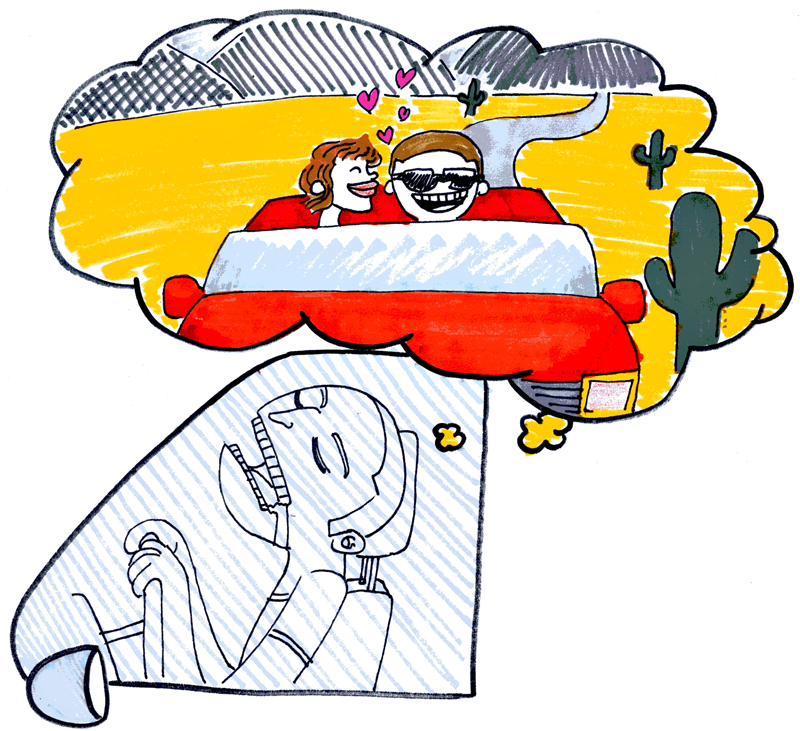The final month of the semester is upon us and that means that campus, once full of eager and excited faces, is now a horde of sleep-deprived zombies running on autopilot.
The college rule of thumb is that between a social life, good grades and sleep, you can only choose two — and most students elect to postpone the Z’s. Unfortunately, this is closer to sabotage than compromise.
After a night of little or no sleep, mental function declines rapidly: 24 hours of deprivation is roughly the equivalent of drinking yourself to a .1 percent blood alcohol level — that’s about where drunk and sleep deprived subjects performed similarly on psychomotor tests involving hand-eye coordination.
This can be dangerous.
Many drivers admit to nodding off at the wheel from time to time — they are more than twice as likely to be men — and police cite sleepiness as a cause of about 100,000 car accidents per year in this country. This results in 1,550 deaths, 71,000 injuries and $12.5 billion losses annually. It doesn’t matter how long you spend studying for that 8 a.m. midterm if you get in an accident on the way to school.
Most cases of nodding off at the wheel end in the driver startling himself awake with no harm done. However, even if you make it to the test in one piece, your performance will suffer because sleep is essential in helping us process learned information.
This relates directly to those all-night cram sessions we swear we’ll never do again. Studying is often a major part of success, but if it comes at the cost of sleep, it’s like putting the ingredients in the bowl without taking the time to cook them. And while the other extreme, no studying and all sleep, isn’t a great idea, either, it’s at least less torturous. The obvious solution is to study throughout the semester and not just the night before, although that’s easier said than done. Be aware of the time and make sure to get at least a few hours of rest before the big test.
So how much sleep do we really need? It varies, but for most people it falls in the range of seven to nine hours a night. Those who regularly get less than seven hours and more than eight generally have higher mortality risks than those in-between, with the too much sleep group at greater risk than the too little. This may be analogous to our relationship with food: Given unlimited supply, we will eat more than we need, but restricting caloric intake is healthier, as long as it’s not taken to extremes.
There are also individuals who don’t need very much sleep, much to the envy of the rest of us. Scientists have identified a gene mutation associated with people who only sleep about six hours per night (compared to the average person’s eight) and they’ve observed a similar effect on mice with a similar mutation. There are also some who claim to have gone years without sleep, though these claims should be taken with a grain of salt, if not the whole shaker along with the pepper.
For those of us not blessed with a magical mutation, there’s the caffeine option. Caffeine does reverse the effects of sleep deprivation, but at a cost: Dependence develops quickly and the result is more restless nights along with more sleepiness. One is best off remembering that caffeine is a drug and should be treated as such. An espresso a few times during the semester isn’t going to hurt you, but when you spend more time interacting with a barista than your roommate, you’re probably worsening your sleep problem.
Ultimately, unless you’re suffering from a sleep disorder (in which case, seek medical assistance), the best way to remain alert and combat sleepiness throughout the day is to stick to a consistent sleep schedule that works for you.
Of course, there’s no fun in that. If you absolutely must lose valuable sleep, at least sacrifice it for a memorable Friday night and not a test that you’re probably going to fail either way.
Printed on Thursday, April 11, 2013 as Dazed, confused students sleepwalk into school





















